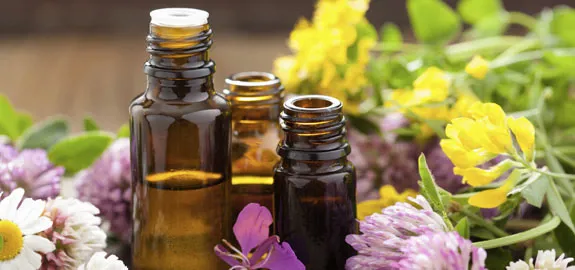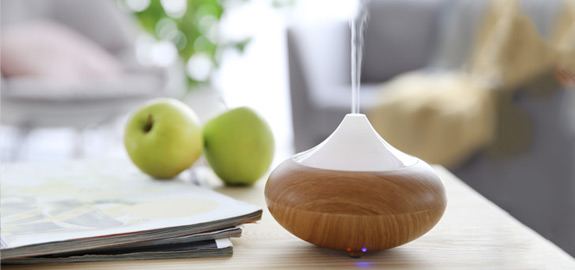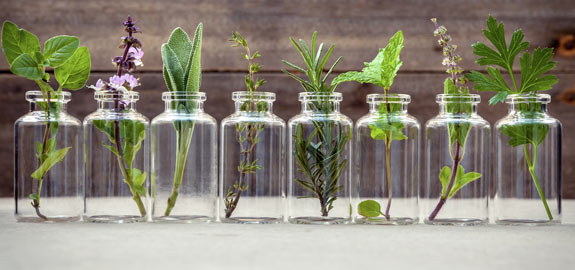
Today, many Americans use aromatherapy to combat anxiety, stress or depression. Others turn to it to improve sleep or relieve pain and discomfort.
Americans spent nearly $34 billion dollars on Complementary and Alternative Medicine (or CAM) in 2007, the most recent year this data is available. This amount equaled just over 11 percent of total out-of-pocket healthcare spending that year.
With growing numbers of people choosing homeopathic treatment, essential oils are gaining in popularity. More and more people are turning to some form of aromatherapy.
Are you one of them? Or do you think you might become one of them down the road? If so, you’re probably wondering if health insurance covers aromatherapy or essential oils.
Unfortunately, health insurance usually doesn’t cover aromatherapy. That’s true for most forms of complementary or alternative medicines. Like all rules, there are some exceptions. But, in general, you should expect to pay out-of-pocket for aromatherapy.
That’s what you’ll learn about here. First, let’s go over the basics of aromatherapy and essential oils.

What is Aromatherapy?
According to the National Association for Holistic Aromatherapy (or NAHA), aromatherapy is “the art and science of utilizing naturally extracted aromatic essences from plants to balance, harmonize, and promote the health of body, mind, and spirit.”
It also “seeks to unify physiological, psychological, and spiritual processes to enhance an individual’s innate healing process.”
A bit too flowery for you? No worries. Cigna says it’s “the therapeutic use of essential oils from plants for the improvement of physical, emotional, and spiritual well-being.”
By the way, you may think of aromatherapy as trendy, but its history dates back for eons. Many cultures have used plant oils in ceremonious rituals or for medicinal purposes since ancient times.
What are Essential Oils?
The short answer here is essential oils come from various plant parts. The naturally occurring aromatic compounds are sourced from a plant’s flowers, leaves, seeds, roots and many other parts.
There are many methods of extraction to produce essential oils. Depending on the plant, these processes include steam distillation, mechanical expression and solvent.
When applied correctly these plant compounds can be used aromatically, topically and internally. Additional uses include:
- Household surface cleaner
- Massage oil
- Air spray
- Bath oil
- Cooking/ Baking
Do your research on quality and usage before trying any of these methods. Some oils aren’t safe for ingestion or inhalation and others are not meant for skin contact.
Given that, it’s important to follow your therapist’s directions when using essential oils. At the very least, follow the instructions included on the packaging.

Does Health Insurance Cover Aromatherapy?
In general, no. Health insurance plans in the US usually don’t cover aromatherapy or essential oil therapy. Actually, it’s rare for most health plans to cover any type of complementary or alternative medicine.
That doesn’t mean it’s impossible to find health insurance that will help you pay for this kind of therapy. It’s more and more common for insurers to accept alternative treatments. Especially if those treatments are medically necessary.
Also, some types of health insurance are more likely to cover CAM treatments than others. We’ll discuss that more below.
Want to learn more about that topic? Read our extensive “Guide to Alternative Medicine and Health Insurance.”
CONTINUE HERE
The Affordable Care Act and Aromatherapy
The Affordable Care Act, or Obamacare, doesn’t say anything specifically about aromatherapy.
It does address how health insurance companies must treat healthcare providers, though. That includes those that practice various forms of alternative medicine.
The ACA states that insurers can’t discriminate against providers. They must treat acupuncturists, massage therapists, and others just like would treat more traditional healthcare professionals.
But the ACA doesn’t require insurers to cover CAM services. It also lets them limit coverage they see as experimental or unnecessary.
That last point is the biggest hurdle for people looking for health insurance that covers aromatherapy. Due to the lack of scientific proof that essential oils are effective in treating illnesses, most insurance companies won’t pay for them.
Of course, that may change in the coming years.
The Affordable Care Act also requires most US health insurance plans to cover 10 categories of services known as “essential health benefits.” Four of those 10 categories are:
- Mental health and substance use disorder services
- Pregnancy, maternity, and newborn care
- Preventive and wellness services and chronic disease management
- Rehabilitative and habilitative services and devices
One could argue that aromatherapy might help people in all those situations, don’t you think?
Curious about preventive and wellness services? Read our article on the subject to learn all you need to know about it.
Do Job-Based Health Insurance Plans Cover Aromatherapy?
Health insurance you get from or through an employer might cover aromatherapy to some extent. It’s more likely that it won’t than it will, though.
Also, even if you find an employer-sponsored health plan that covers essential oil therapy, it might require a doctor’s referral.
Don’t worry if your health plan makes you get one of these from your doctor. They’re common, especially for alternative medical treatments like acupuncture or chiropractic care.
Do Marketplace or Off-Marketplace Health Plans Cover Aromatherapy?
Obamacare doesn’t require health insurers to cover aromatherapy. Most plans bought from the “marketplace” won’t help you pay for it.
Do your research anyway, though. You never know what you’ll find while shopping on the exchange. People often use “marketplace” and “exchange” interchangeably in this situation.
The same is true if you decide to buy health coverage away from the federal or state marketplace. That’s because the ACA governs those plans as well.
Getting a policy directly from an insurance company may be your best chance to get essential oil treatment covered. At the very least, it’s sure to provide you with the best selection or most options.
Does Medicare Cover Aromatherapy?
Will it surprise you to hear that Medicare rarely covers aromatherapy, too?
Sadly, that’s the case. Actually, it’s worse. Medicare pretty much never helps enrollees pay for this sort of treatment.
Granted, it doesn’t pay for many types of alternative medical care, period. Chiropractic care is one of the only examples, and even there it restricts coverage.
If you and your physician think aromatherapy is medically necessary, file an appeal.
Does Medicaid Cover Aromatherapy?
Unlike Medicare, Medicaid may be the best option for Americans who want for alternative treatments.
At least 12 states have expanded their Medicaid programs in recent years to pay for “unproven” care. That includes massage, chiropractic manipulation, or acupuncture.
That’s no guarantee it will cover your aromatherapy or essential oil therapy, unfortunately. Most of the Medicaid expansion aims to combat the country’s growing opioid problem.
If you have a financial limits and need aromatherapy for a medical issue, contact your Medicaid agency for help.
Does My Health Insurance Plan Cover Aromatherapy?
The quickest way to find out if your plan covers aromatherapy or essential oil therapy is to review the policy. If you don’t have printed copy of your policy, look online. You should be able to find it there.
If you’re still unsure, contact the insurance company and ask about aromatherapy coverage.
Should the person you talk say that, yes, your plan covers aromatherapy, don’t end the chat there. Ask if you need to get a statement of medical necessity from your doctor or anything similar.
And what if you’re shopping for health insurance? Don’t be shy about making your interest in aromatherapy coverage part of the conversation.
If you’re having a hard time finding insurers that cover this type of care, talk with local aromatherapists. They may be able to point you to the companies that are most likely to offer it.
What Can I Do If My Health Plan Doesn’t Cover Aromatherapy?
If your current health plan won’t cover aromatherapy, shop around for other insurers. If you can’t find another plan that covers it, your only other option is to pay for them out of your own pocket.
Should you find yourself in this position, talk with your aromatherapist. Specifically, try to negotiate what you pay for his or her services. At the very least, they may give you a discount, especially if you pay in cash. They also may allow you to pay for your sessions in installments.
How Much Does Aromatherapy Cost?
Again, it’s hard to be specific here because aromatherapy prices are all over the map. Also, if you decide to do-it-yourself, those costs differ widely, too.
Common essential oils can range from $15 to $150 for a 5cc bottle, depending on the quality and blend. With so many plant derivatives and usage options, a therapist can help you find an oil for your need.
If you want to combine aromatherapy with other treatment, like acupuncture or massage, expect a higher price. A massage therapist may charge upwards of $150 an hour for a session with essential oils, for example.
With essential oils, quality comes at a cost. Do your research to find an oil you feel comfortable with.
How Are Essential Oils Used to Treat Ailments, Illnesses, and Diseases?
Aromatherapists use essential oils in a variety of ways to help their patients. These methods may reduce a patient’s anxiety or stress. Or they may relieve pain or discomfort. They can even combat depression or insomnia. “I am able to make suggestions to people on complimentary therapies using essential oils,” says Kim Gonza from The Aroma Nurse.
To achieve this, therapists balance certain essential oils with certain methods of dispersal.
For example, you might use rosemary or patchouli oil to deal with fatigue. Or you might call on lavender or sandalwood oil to help battle depression. Peppermint oil, on the other hand, can aid people suffering from vertigo, nausea, or headaches.
When it comes to distributing those oils, you may inhale them – either directly or indirectly. Or you may pour them into a diffuser and have them sprayed into the air. Other options include drops into a bath or having them massaged into your skin.
Why do you breathe in essential oils or rub them on your skin? According to the Mayo Clinic, it stimulates “smell receptors in the nose, which then send messages through the nervous system to the limbic system – the part of the brain that controls emotions.”
Others believe essential oils alter various bodily functions by interacting with hormones and enzymes. Another theory suggests they prompt our bodies to produce substances that fight pain.
Aromatherapy is administered alone or combined with similar therapies for holistic care. Acupuncture and massage are two common examples. “We often incorporate holism which addresses the physical body, mind and soul into our practice,” explains Gonza. “This can be very beneficial for patients and clients.”
What Are the Health or Medical Benefits of Aromatherapy and Essential Oils?
According to aromatherapists, using essential oils can help people with many health and medical ailments. For instance, they can help with:
- Acne and skin problems
- Anxiety and stress
- Depression
- Discomfort associated with pregnancy and childbirth
- Fatigue
- Insomnia
- Pain (especially chronic)
There are few scientific studies on the medicinal uses of aromatherapy and essential oils. Most studies focus on its use as an anxiety or stress reducer. Few if any support the idea that it can prevent or cure illness or disease.
Is Aromatherapy Safe?
In most cases, yes, aromatherapy is safe.
That said, allergic reactions, skin irritation, and more can occur. That’s especially true if you treat yourself and don’t use essential oils as directed.
Some you should keep away from your eyes or mouth. Some you shouldn’t put anywhere on your skin. Some you can inhale indirectly, but not directly. The list goes on and on. And the rules change depending on if you’re pregnant, breast-feeding, or a child.
It’s important to consult a trained aromatherapist before using essential oils.
Keep in mind that there are no national certifications for aromatherapists in the US. Also, the Food and Drug Administration doesn’t regulate the essential oils used in aromatherapy. The FDA only gets involved if a manufacturer claims an oil will treat specific diseases.
References:
QuoteWizard.com LLC has made every effort to ensure that the information on this site is correct, but we cannot guarantee that it is free of inaccuracies, errors, or omissions. All content and services provided on or through this site are provided "as is" and "as available" for use. QuoteWizard.com LLC makes no representations or warranties of any kind, express or implied, as to the operation of this site or to the information, content, materials, or products included on this site. You expressly agree that your use of this site is at your sole risk.